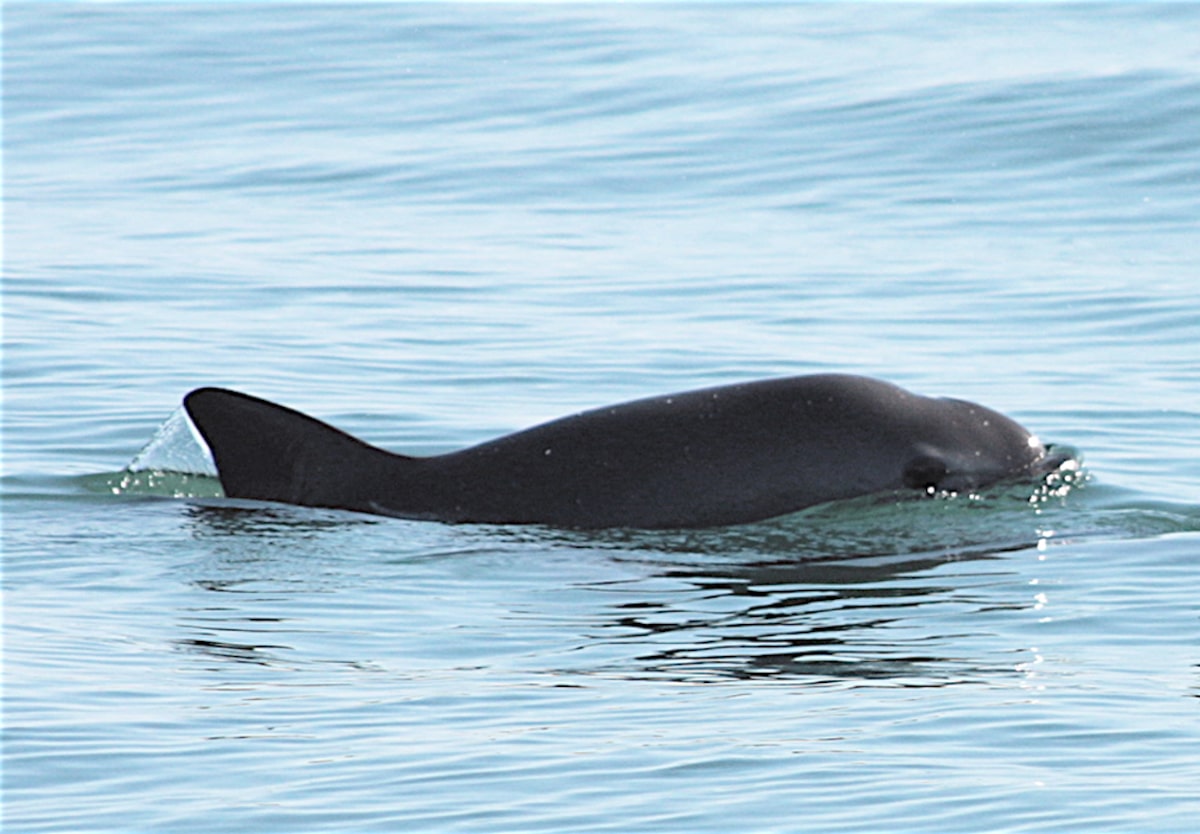CITES Sanctions Mexico as Protections for Vaquita Fall Short

 Why you can trust us
Why you can trust us
Founded in 2005 as an Ohio-based environmental newspaper, EcoWatch is a digital platform dedicated to publishing quality, science-based content on environmental issues, causes, and solutions.
The Convention on International Trade in Endangered Species of Wild Fauna and Flora (CITES) has announced sanctions against Mexico, asserting that the country’s efforts to protect the critically endangered vaquita are failing.
Vaquita (Phocoena sinus) are the rarest marine mammal on the planet, with only about 10 individuals of the species remaining, according to the World Wildlife Fund. They are only found in the more shallow, coastal waters of the northern Gulf of California in Mexico.
These porpoises are especially prone to being caught as bycatch. They are often entangled in nets intended for fish, including endangered totoaba, and shrimp as part of illegal fishing operations in the vaquita’s protected habitat.
CITES announced the sanctions due to a lack of controlling the illegal fishing of totoaba and mean the country cannot export wildlife products to most other countries. The sanctions will prohibit millions of dollars worth of exports for products like crocodile leather, pet reptiles, cacti, mahogany, and other animal and plant goods.
The country must also swiftly create an action plan and implementation timeline to keep fishers and unauthorized vessels out of the protected vaquita habitat. Sanctions are expected to remain in effect until Mexico’s revised compliance action plan is submitted and considered adequate by the CITES committee.
“Mexico is rightly facing the consequences of its failure to control illegal fishing that is causing the vaquita’s extinction,” Zak Smith, director of global biodiversity conservation at Natural Resources Defense Council, said in a statement. “For decades, the international community has been urging, imploring, and begging Mexico to meet its legal obligations. Broad sanctions are appropriate and should stay in place until Mexico demonstrates results.”
Mexico has received criticism and warnings for several years about illegal fishing. Mexico has previously submitted protection plans, and revised plans, to address the issue. The country has said it would find “alternative fishing techniques,” as The Associated Press reported, and has placed traps to snare illegal nets. But the CITES committee ruled these plans insufficient.
Mexico’s government has faced violent opposition from fishers, who are trying to catch totoaba for their swim bladders, which can sell for thousands of dollars per pound. Critics have emphasized that the Mexican government has not spent money to incentivize fishers to stay out of the protected vaquita habitat, nor have they implemented training on alternative fishing methods.
The country has made some efforts, including banning gillnets in the protected areas and patrolling by Mexico’s Navy, but just this month eight illegal fishing vessels were found in the protected habitat, and 38 vessels were found in the Vaquita Refuge, the Center for Biological Diversity reported.
“While no one relishes economically painful sanctions, all other efforts to push Mexico to save the vaquita haven’t been enough,” said Sarah Uhlemann, international program director at the Center for Biological Diversity. “The strongest measures possible are needed to wake up the Mexican government and prompt it to finally save this tiny porpoise from extinction.”
Subscribe to get exclusive updates in our daily newsletter!
By signing up, you agree to the Terms of Use and Privacy Policy & to receive electronic communications from EcoWatch Media Group, which may include marketing promotions, advertisements and sponsored content.

 233k
233k  41k
41k  Subscribe
Subscribe 




